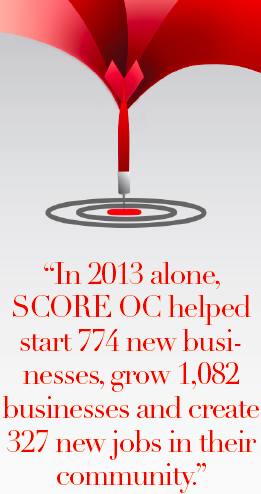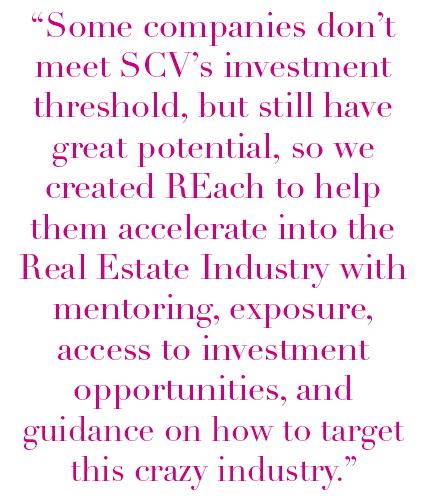A recent uncovering of a mortgage assistance scheme involving a Detroit man and his “faith-based” company has borrowers asking, “How do we protect ourselves from foreclosure relief scams?” Freddie Mac offers tips to help borrowers become cautious of companies that seem too good to be true.

Know an Incredible Woman Preserving the
Quality of Life During COVID-19?
Submit your story today!
Read More

Consulting & Branding Opportunities
Grant your business access to insider,
proven knowledge to improve the quality of your procured
services and maximize business performance.

If you need D&I
Contact Us!
A Team Focused on Bring Diversity and Inclusion to Every Level
Learn More

#1 Top Real Estate Influencer
Desiree Patno
Diversity & Inclusion, Quality of Life, Know the Rules of the Game ®
Your Next Event
Grow Your Business
NAWRB: An SBA Resource
NAWRB is listed as a women-owned business resource for the SBA.
Check It Out
NAWRB Aging Population
Help Protect Elders
from Financial Abuse
Over $36.5 billion a year is lost annually in the U.S.
Prevent Financial Abuse

Women's Homeownership:
Dream. Stability. Sanctuary.
Life often presents us
with unplanned disruptions.

AI Technology
with
a Human Touch
Is
The Perfect Balance


NAWRB Women's Global Resource Center
A women’s depository for vendors & clients to grow their diverse spend & increase women’s employment at all levels within the housing ecosystem.

Daily Archives: June 9, 2015
What’s the SCORE?


Last month you read about all the fantastic resources available to you through the U.S. Small Business Administration (SBA) and its resource partners, including SCORE. This month we delve deeper into how SCORE assists entrepreneurs like you in starting and growing business enterprises every day all across the country.
Started in 1964, SCORE (Service Corps of Retired Executives) is a nonprofit association dedicated to helping small businesses get off the ground, grow and achieve their goals through education and mentorship. Celebrating its 50th anniversary this year, SCORE has assisted over 10 million of America’s entrepreneurs in that time. As a national organization, SCORE is comprised of over 11,000 volunteers available at 320+ locations throughout the country and online. In 2013, the work of SCORE’s volunteer mentors and small business clients resulted in 38,630 new businesses started and 67,319 new jobs created in the U.S.
 SCORE accomplishes these results through a variety of methods including educational workshops, webinars, and helpful online resources, but the real value that sets it apart from other organizations is free, personalized, one-on-one mentoring by business experts who have truly “been there and done that.” SCORE’s brigade of 11,000+ volunteer mentors is made up of men and women who are both retired and currently working, with experience in a huge variety of industries and fields. And true to the organization’s motto, SCORE mentors are there to assist “For the Life of Your Business” – from concept to creation, through growth and even eventual exit.
SCORE accomplishes these results through a variety of methods including educational workshops, webinars, and helpful online resources, but the real value that sets it apart from other organizations is free, personalized, one-on-one mentoring by business experts who have truly “been there and done that.” SCORE’s brigade of 11,000+ volunteer mentors is made up of men and women who are both retired and currently working, with experience in a huge variety of industries and fields. And true to the organization’s motto, SCORE mentors are there to assist “For the Life of Your Business” – from concept to creation, through growth and even eventual exit.
With 320+ chapters, many with their own additional branch locations, and a robust online educational offering, SCORE seeks to serve entrepreneurs through whichever information outlet is most convenient for them. One chapter in particular located in Orange County, California was recently named the 2013 SCORE Chapter of the Year for its commitment to excellence in serving entrepreneurs.
SCORE Orange County (OC) consistently serves the highest number of clients of all the SCORE chapters across the nation. In 2013 alone, SCORE OC helped start 774 new businesses, grow 1,082 businesses and create 327 new jobs in their community. But this chapter succeeds in much more than volume alone – a culture of innovation is their hallmark, driving continual expansion and improvement in services, bringing more and more clients into their educational and mentoring services.
One of the most groundbreaking developments to come out of Orange County is the concept of the CEO Forum program. These forums consist of monthly half-day collaborative meetings of small business owners that are facilitated by SCORE mentors. SCORE OC hosts seven of these ongoing forums with over 80 small business owners, and the concept has now been successfully replicated in a number of other SCORE chapters, including Minneapolis and San Diego.

SCORE OC has also made it a priority to effectively serve female entrepreneurs by hosting bi-monthly Women in Business Breakfasts that facilitate learning and networking, as well as annual Women Business Owners Conferences. The annual conference is a fantastic opportunity for female business owners to hear from knowledgeable speakers, learn from successful peers and network with others.
In fact, SCORE OC has been so successful in helping local businesses start and grow that two of their small business clients were chosen from nominees across the country to be honored with national SCORE awards in August of 2013.
ViArch Integrated Solutions, a leading provider of automated precision measurement and control solutions, was named the 2013 SCORE Outstanding Minority-Owned Small Business award winner. Owners Angela and Eric Jones teamed up to start their business in April of 2008. They both had the technical know-how to achieve great results for their prospective clients in the aerospace industry, but needed help with their marketing and sales tactics. They worked with SCORE OC mentor John Pietro to create a thorough and thoughtful plan to keep their enterprise on track towards their goals. Angela reflects on the start of their business saying, “We spent a lot of wasted effort reacting to issues we could have anticipated and addressed ahead of time, had we only done a bit of planning at the start. After working with SCORE Orange County, we gained critical business knowledge and management skills, and are in a better position to plan and strategize as well as operate our business effectively going forward. Compared to the alternative, I much prefer having a ‘map’ directing us where we are going, with a plan for addressing hurdles when they arise.”ViArch now boasts an impressive list of clients including The Boeing Company.

Orange County’s second national award winner caters to a slightly different clientbase: pet lovers! Dog is Good, a pet-themed retail operation in Los Alamitos, took home the 2013 SCORE Outstanding Veteran-Owned Small Business award. Owners Jon and Gila Kurtz knew being entrepreneurs was in their blood. In 2005 the couple recognized a void in the pet marketplace and seized the opportunity to start their own business. By 2008, Jon (an active captain in the U.S. Navy) and Gila (a professional dog trainer) began designing and selling dog-themed apparel at small retail events such as charity dog walks and fundraisers. Eventually they began selling their products in retail stores in Orange County and Los Angeles County. By the end of 2009, their revenues had nearly quadrupled, and sales have grown every year since then. When Jon and Gila needed help taking their business to the next level they turned to SCORE OC and met with Tom Patty, a marketing expert and SCORE mentor, who helped them focus their message to keep it centered on their core audience. With these defined goals in mind, the Kurtzes have begun licensing other products and are now branching into cat and horse products as well.

ViArch Integrated Solutions and Dog is Good are just two of the 10 million small business owners who have benefited from working with SCORE mentors over the past 50 years. And SCORE Orange County is just one chapter of more than 320 across the country that is dedicated to helping small businesses start and grow. With free expert business advice just a click or call away, why not take advantage of the wisdom and insight a SCORE mentor can bring to your business? Get started at www.score.org or by calling 1-800-634-0245.
Constance Freedman Talks to NAWRB about NAR’s REach Program


Constance Freedman took some time out of her extraordinarily busy schedule to talk to us about Second City Ventures and REach. REach is NAR’s program to hand-pick technology startup companies that can provide value to the Real Estate Industry, and help them grow and integrate with the industry.
The Second Century Ventures Fund (SCV) is a fund set up by the National Association of Realtors (NAR) six years ago, after their 100th anniversary (hence the name Second Century). Constance Freedman manages all aspects of the fund, from cultivating investment opportunities to helping portfolio companies achieve their strategic goals. Constance is also Managing Director of REach™, Second Century Ventures’ technology accelerator program.
It is a known fact that Real Estate represents 15% of the U.S. economy, over $7 billion of ad spend and 2.5 million jobs. If you were a technology company that developed a hot product, how do you break into the Real Estate market? You apply for REach, and if selected, NAR partners with you to make your name synonymous with Real Estate. It’s literally a dream come true for tech startups that can benefit the industry.
“NAR is the nation’s largest trade organization, and they literally hold your hand and give you access to their 1 million plus members. It’s more than just acceleration,” says Constance.
To clarify and give some background, we are really talking about two different entities here, Second Century Ventures, and REach. SCV is the investment arm of NAR, providing capital and resources to companies that can benefit the Real Estate Industry. Some past SCV investments include such familiar brands as ePropertyData, ZipLogix, Sentrilock, ifbyphone, Move Inc., and DocuSign. SCV actually funds the tech startups, whereas REach mentors and fine tunes the tech startups, then introduces them to the Real Estate Industry as preferred partners, accelerating their growth without providing actual startup capitol.
Most companies that are considered for either SCV or REach have a product or service that can serve a number of different industries, including Real Estate. For example, DocuSign provides enormous value to any industry with tight deadlines and that requires authenticated signatures, but the revolutionary value and convenience if offered the Real Estate Industry was enough to make SCV give them financial backing and literally roll out the red carpet to present DocuSign to the Real Estate Industry.
 “Some companies don’t meet SCV’s investment threshold, but still have great potential, so we created REach to help them accelerate into the Real Estate Industry with mentoring, exposure, access to investment opportunities, and guidance on how to target this crazy industry,” says Constance.
“Some companies don’t meet SCV’s investment threshold, but still have great potential, so we created REach to help them accelerate into the Real Estate Industry with mentoring, exposure, access to investment opportunities, and guidance on how to target this crazy industry,” says Constance.
REach helps companies tailor their product or service specifically to the Real Estate Industry. REach mentors (some of the most highly regarded executives and entrepreneurs in the industry from companies with combined revenues of several billion dollars in real estate alone) guide them in optimizing both their marketing efforts and product offering to be real estate specific. REach also provides focus groups comprised of real estate professionals, to give real feedback on the product before it hits the market.
But by far, the greatest benefit of REach is being associated with, and introduced by, the National Association of Realtors. Having NAR introduce you as a preferred product and technology partner carries some serious weight; real estate professionals will not bother to stop and compare your product to your competitors’ after NAR has given their seal of approval.
For real estate professionals, both SCV and REach help them sort through the thousands of technology options, and immediately know which ones to choose, as they’ve been researched, tried and tested by NAR. The result is a true win-win situation for NAR, their chosen technology partners, and the Real Estate professionals who will come to rely on them.
Who is Afraid of the Big Reit?

Let’s start with REITs.
REITs, or real estate investment trusts, are often referred to as “real estate stock.” REITs are corporate entities that own a portfolio of properties and/or mortgage loans. Anyone can buy shares in a publicly traded REIT, and they are an attractive option for investors, since they offer the benefits of property ownership without the hassles of being a landlord.
REIT shares can be sold quickly, providing the key advantage of liquidity. There is also higher yield and less risk, since the investment is in an entire portfolio of properties, not just one or two.
REITs came into being in 1960, when Congress decided to made it possible for smaller investors to invest in large-scale, income-producing real estate via the purchase of equity, the same way one can buy stock in corporations in any industry.
Types of REITs
REITs generally fall into three categories: equity REITs, mortgage REITs, and hybrid REITs, with equity REITs (a.k.a. eREITs) being the largest category. Equity REITs own and manage income-producing real estate, which are acquired through bulk sales at discount prices directly from banks. Mortgage REITs, on the other hand, earn money either in the form of interest on mortgage loans or through the acquisition of mortgage-backed securities. Hybrid REITs invest in both properties and mortgages.
Investment trust firms benefit from the discount prices obtained from bulk purchases, enabling them to yield higher and faster returns. Banks enjoy the clear and much-needed benefit of being able to dispose of large volumes of non-performing assets without having to pay administrative costs, maintenance costs and broker fees to list each one separately. However, what is good for banks and investors is seldom good for the average homeowner.
Concerns
Some argue that regulators should expand their oversight of the large REITs that use borrowed money to invest in mortgage-backed securities, as the rise in interest rates may lead the firms into asset sales that destabilize markets and potentially damage the broader U.S. economy. The reliance by the industry on short-term loans to invest in government-backed mortgage securities involve interrelated risks, and should be monitored closely to reduce the risk of a cascading failure of counterparties with systemic implications. Sizable disruptions in the secondary mortgage markets against the possibility of rising mortgage rates could also have macroeconomic implications, jeopardizing the already-fragile housing market recovery.
The New Landlord
Most of us thought the single family rental market was robust before the housing market crash, with sixteen million SFRs already designated as rentals in 2010. If we add to the mix approximately five million foreclosed homes, and consider that many of them will become investor-owned rental units, we begin to see the enormity of the impact of bulk SFR sales that are allocated as rentals. Thus, the REO-To-Rental market has emerged as an institutional asset class.
 The bulk sale-to-rental model provides a long-term rental income stream as well as the opportunity for appreciation. Consider the fact that these bulk sales are contributing to an inventory shortage on the open market, which means the model itself is ensuring faster appreciation as home prices increase due to limited supply. Many argue that this win-win for investors is a no-win for prospective homeowners, especially those who are rapidly getting priced out of the market. And those who get priced out of the market most likely end up renting, further feeding into the bulk sale investor’s win-win scenario.
The bulk sale-to-rental model provides a long-term rental income stream as well as the opportunity for appreciation. Consider the fact that these bulk sales are contributing to an inventory shortage on the open market, which means the model itself is ensuring faster appreciation as home prices increase due to limited supply. Many argue that this win-win for investors is a no-win for prospective homeowners, especially those who are rapidly getting priced out of the market. And those who get priced out of the market most likely end up renting, further feeding into the bulk sale investor’s win-win scenario.
What do critics say?
Many housing industry professionals are objecting to bulk foreclosure sales, considering them a gift for investors at the expense of taxpayers and prospective home buyers, and calling for changes at the Federal Housing Finance Agency (FHFA), the agency that initiated the program. While the bulk sale-to-rent program was initiated by the FHFA to help Fannie and Freddie unload thousands of foreclosed assets weighing down their books, banks began to quickly follow suit to dispose of bulk assets. When you consider that Fannie and Freddie own approximately 200,000 homes, and the nation’s banks own close to 600,000 homes, it is a feasible argument that the shift toward bulk sales will inevitably slow or halt the recovery of the housing market.
Although economic indicators show that the housing market is improving, many believe that tightened lending restrictions, negative equity, the deleveraging of borrowers and lenders, and the overhang of delinquencies will continue to suppress owner-occupied home sales while increasing the percentage of renters. If a large chunk of purchases are by investors and REITs, only investors benefit, and individual buyers and real estate professionals are excluded from the marketplace. We are looking at an entirely different real estate market with rapid gains in momentum down this path.
Bulk Sales inhibit the social benefits of home ownership – our government has historically recognized the stability that home ownership brings to communities, particularly urban communities. Programs such as the Community Reinvestment Act of 1977 served to boost ownership amongst those who would otherwise be shut out of the home ownership opportunity. Transferring increasing numbers of properties to big fund investors may turn the U.S. into a nation of renters instead of a nation of owners.
In an industry already devastated by dramatic reductions in earnings and inventory, bulk sales are forcing more and more real estate professionals to abandon their careers. The ‘shadow inventory’ or 2nd wave, that was once a buzzword that held promise among real estate professionals, has not yet made it to the market, and it is hard to predict at this point how much (if any of it) will. Another looming concern is that bulk sales may lead lenders to move back into the practice of direct selling in competition with agents, a clear conflict of interest.
Conclusion
While bulk sale purchases may yield significant ROIs for investors, the housing market at the MLS level will suffer from the loss of properties, which feeds a rise in home prices bolstered by the massively disruptive speculator intrusion. Many housing industry professionals will leave the industry. Future home buyers are left to wrestle with the consequential inflated housing prices, as critics accuse the FHFA of choosing to support investors instead of Americans that want a home to own and live in.
Despite such concerns, there is reason to believe that bulk sales to REITs, under a watchful eye, can help lighten the burden of REO inventory, which remains heavy. RealtyTrac estimates that the industry still has some 600,000 bank-owned homes to sell, and they can’t all go to bulk sale. Will the industry adapt?

 Login
Login




